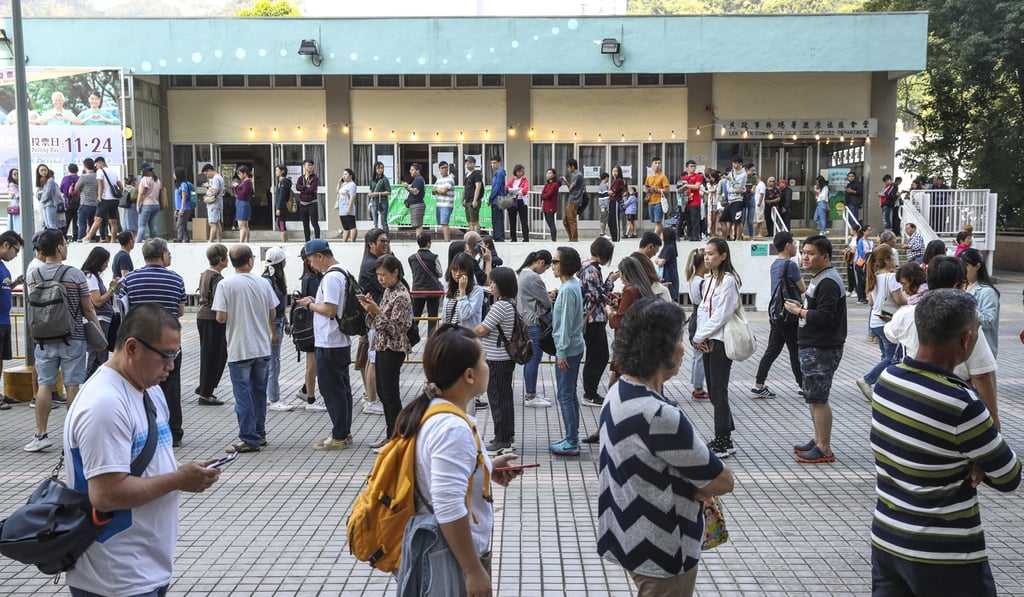Hong Kong electoral authorities push back at suggestion doxxing threats against police officers came from leaked voter details
- Two sides in court for hearing into whether temporary order restricting viewing of voter register should be made permanent

Hong Kong Police Force should not make the election register a scapegoat for doxxing threats, a court heard on Monday as a government lawyer suggested officers’ personal details might have been obtained through hacking instead.
Raymond Leung Wai-man SC, representing the electoral authorities, was speaking at a hearing at the Court of First Instance to decide whether to turn a temporary order previously granted by the Court of Appeal to restrict public viewing of the election register, into a permanent ban as requested by frontline officers.
Leung said there was no evidence to suggest a causal relationship between information obtained in the election register and online doxxing – the malicious disclosure of personal details – against police officers and their families during the month-long anti-government protests in Hong Kong.
He said evidence had suggested that doxxers had hacked into the police database to obtain officers’ personal information, including their identity card number, date of birth, contact details and their academic background. Light-hearted photos of their family life and information about their children might have been obtained via social media, he added.

“It is not entirely fair to use information on the register as a scapegoat for all these misdeeds,” Leung told Mr Justice Anderson Chow Ka-ming, “It is likely the information comes from all sorts of internet media that has already been there.”